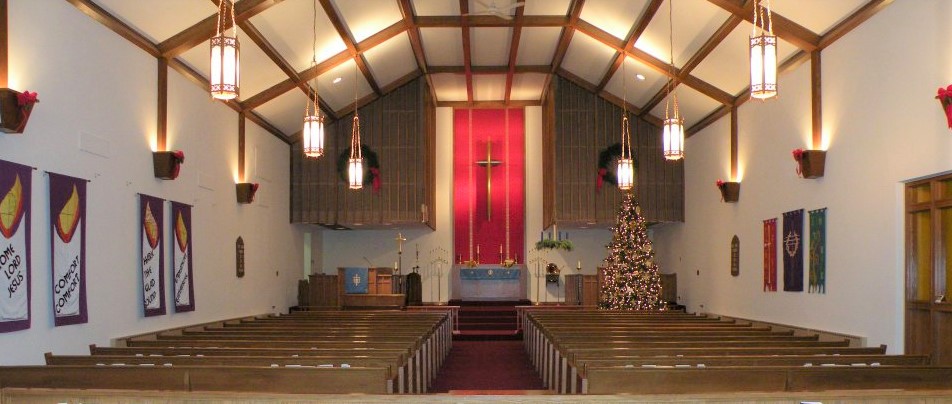July 26 2020 Sermon
P8A 2020: Matthew 13:31-33, 44-52
She put before them another parable: the kingdom of heaven is like a woman who
ordered something fragile from Amazon; she opened the box and found little bits of
styrofoam packing everywhere for weeks.
Again, the kingdom of heaven is like a cat that knocked a bottle of perfume off the
dresser and onto the carpet, and the fragrance filled the entire house.
Again, the kingdom of heaven is like a student who made an art project with glitter.
Although Jesus doesn’t explain today’s parables as he did the ones we read the last
two weeks, even these shorter stories are not as simple as they seem. Matthew’s gospel
makes not one but two references to a mustard seed; this one and his admonishment in
chapter 17 that if the disciples had faith the size of a mustard seed they would be able to
move mountains. We tend to conflate this story and that one and come out with a nice
and tidy moral along the lines of “something really big can start from something really
small.” And that’s true, but Jesus would have surprised the disciples with what that
something was. Because mustard isn’t a seed that anyone would intentionally sow in a
field; it’s an invasive species that you don’t want to grow to the size of a tree that’s large
enough to attract nests full of birds. A little mustard is tasty, but soon it might start to
look like too much of a good thing.
Similarly the story of the yeast is not what it appears at first. In Jesus’ tradition you
didn’t always want bread that rises; unleavened bread was what the Israelites were
supposed to bake to celebrate Passover. And this yeast would not have been the neatly
packaged stuff we buy at the grocery store today, but old bread-mold that the woman hid
in a huge amount of flour, turning all of it into rising bread—growing far beyond what
was expected. I recently saw a picture that looked like a scene from the movie The Blob
but was really of bread dough that had risen and overflowed from a dumpster, making a
several foot deep and wide puddle in a parking lot behind a restaurant. The caption said
that the staff got the proportions of what they were baking wrong and threw out the bad
batch of dough…but someone needed to tell them the yeast wasn’t going to stop working
just because they had thrown it out. The same could be said for the kingdom of heaven.
So yes, from small beginnings big things get started. But these stories are less
about how we can do a lot with a little and more about how God starts working in small,
sometimes unexpected, sometimes inconvenient, sometimes even unwanted ways and
quickly moves beyond our control. It is, after all, God’s kingdom and not our own that
we’re talking about here. And God’s vision for a world of love, justice, peace, mercy,
grace, and abundance is always going to far exceed anything we can imagine. If camp
were in session this week, we’d almost certainly be singing about God turning the world
upside down; but the truth is that we don’t want everything in our world to change; there
are some things we’d like to keep just the way they are, thank you very much, even if
they are just a shadow of what God wants for us and for this world. It is hard for us to
part with what we know and trust God’s promise of what is better. Yet God doesn’t wait
for us to be comfortable with the in-breaking of the kingdom; God doesn’t need our
permission for the Spirit to move.
Perhaps that’s why Jesus tells the parables of the treasure in the field and the pearl
of great value: to remind us that the kingdom is precious and priceless—worth giving up
everything else, because the loss or at least the change of everything else is what we can
expect to happen when the kingdom of heaven begins breaking into this world. We can
certainly look at our society, near and far, and identify the evils that exist among us; when
we pray we usually list the wrongs we hope God will make right. But just like the
proliferation of mustard plants or the explosion of yeast in rising dough, God is not about
to stop with our pet projects and chosen priorities. That’s good, because our vision is too
limited. But when we pray “thy kingdom come” we better be prepared for our lives to
change as the world changes, as much needed change comes for others, because that’s
what it means to be bound to one another in humanity, to really love one another as God
loves us.
One way to think of our baptismal calling is as a challenge to believe that living by
the rules of God’s kingdom is better—for others and ourselves—than living by the rules
of this world, to believe that kingdom-living is worth setting aside everything else that we
have and everything else that we are. When we are surprised, or anxious, or annoyed to
see the work of the Spirit taking root like mustard, messing up the parts of this world that
we’re not ready to let go, when we are faced with weighing everything we think we
know, and think we are, and think we have against the treasure of heaven, may we have
the courage to respond in faith, trusting that God keeps God’s promises

